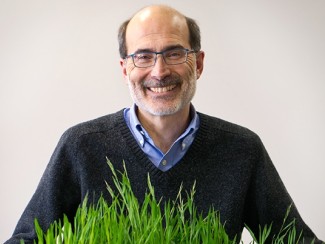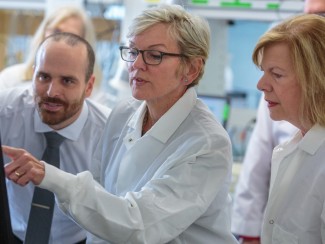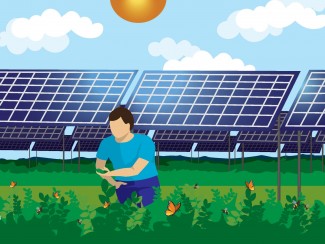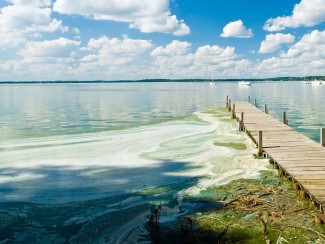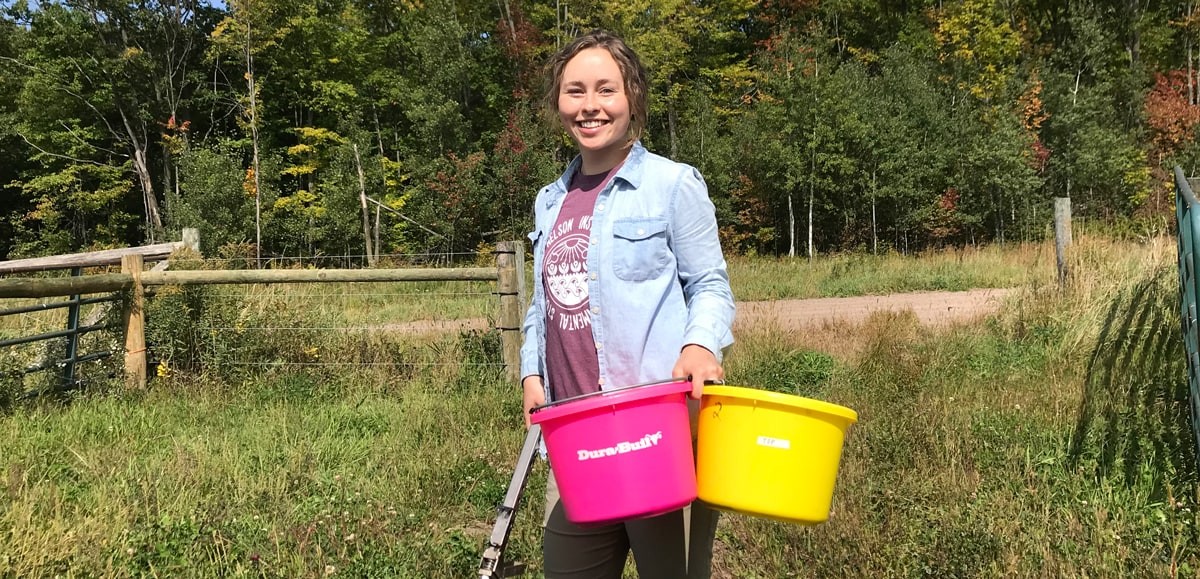
Our graduate students and postdoctoral researchers play an enormous role in the transition to a sustainable, resilient, and affordable energy future that is centered on social and economic equality. From lab experiments to field work to classrooms, these leaders of today and tomorrow are our catalysts for energy discovery.
In this new series, we learn more about what inspired these talented researchers, what brought them to their field of study, and the questions that drive their work at the Wisconsin Energy Institute.
This week we check-in with Ashley Becker, a graduate research assistant in Randy Jackson's lab at the University of Wisconsin–Madison.
Hometown: Madison is starting to feel more like home now, but Maquoketa, Iowa — the town where I grew up — will always be home to me. Since moving here, I’ve learned that Maquoketa is right on the edge of the driftless region.
What brought you to UW–Madison and to the Wisconsin Energy Institute (WEI)?
I knew I wanted to do interdisciplinary, environmentally focused research. I had an interest in the intersection of environmental attitudes and the adoption of conservation practices, as well as their associated environmental benefits, but I hadn’t decided what I wanted to focus on specifically. UW–Madison and particularly the Environment and Resources master’s program in the Nelson Institute offered a well-respected, interdisciplinary curriculum that provided the freedom to explore and identify the niche I wanted to study. As my interests narrowed to soil carbon and agricultural practices, I was introduced to Dr. Randy Jackson, and becoming part of the Jackson Lab has led to my affiliation with the Wisconsin Energy Institute.
What is one thing that has surprised you about UW, Madison or Wisconsin?
I was surprised with how small Madison now feels. I grew up on a farm in a town of approximately 6,000 people, so to me, Madison was a very big city. However, after spending two and a half years here, Madison doesn’t feel so big anymore and that’s something I appreciate. Once I established my routine, it wasn’t uncommon to simply run into people I knew when out and about — though of course that’s been different over the last nine months.
Tell us about your research, in a way you would describe it to friends or family.
Farmers who raise grass-fed livestock, such as beef or dairy cows, pigs, sheep, etc., can manage how their animals move around their pastures in many ways. That management involves decisions like determining the number of animals that should be in an area at once, the size of that area, and the amount of time the animals stay there. Those decisions impact the plants and the soil.
I’m interested in exploring how soil carbon is changing in relation to those different management decisions. If the animals are managed in a way that allows them to consume all plants within an area while still leaving some plant residue behind, and then allows the plants to regrow before the animals return, the hypothesis is that those pastures will have more soil carbon. In other words, farmers need to balance the intensity of grazing and the rest period before grazing again in order to promote healthy plant communities in the pastures, which promotes healthy soil.
Having pastures with more soil carbon provides many benefits to farmers, including increased water infiltration and retention, which are important during heavy rainfall and dry periods, and improved productivity. Others beyond the farm can also benefit, since increased soil carbon helps reduce runoff and erosion, which helps to reduce nitrogen and phosphorus in our waterways.
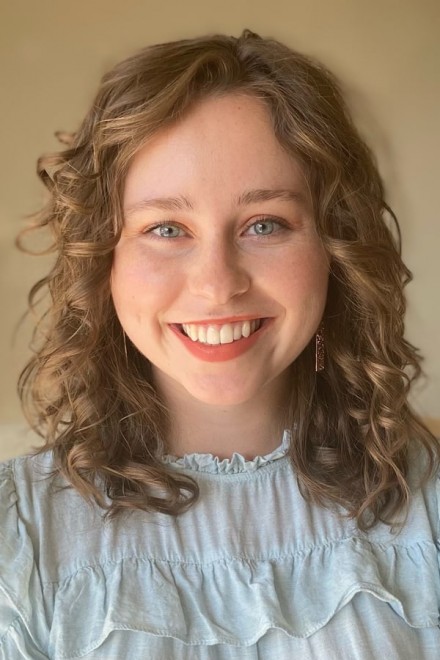
What is a practical use or application of your research outside of the lab?
Understanding soil carbon changes from different grazing practices could be relevant for farmers as carbon markets materialize and offer payments for increasing and maintaining soil carbon on agricultural lands. Also, by increasing our understanding of the practices that build soil carbon, those practices can be promoted as strategies for climate change adaptation, which might also aid in climate change mitigation.
What led you to this area of research?
My first semester at UW–Madison, I took a course which emphasized the link between climate change and the threats it poses to human rights. I felt like my research needed to make some contribution to addressing climate change, no matter how small. Reflecting on growing up on a farm, and then having the opportunity to converse with local farmers during undergraduate research, I’ve developed an appreciation for the work farmers do and the conversations that can be had about conserving the land. That led me to begin crafting a research project that would allow me to explore the ways in which agricultural practices could be part of the solution to climate change. Finally, after meeting a Wisconsin farmer, Ron Schoepp, on my program’s introductory field trip, we reconnected to begin brainstorming how I might be able to relate my thesis research to what he was doing on his farm. One of those ideas involved soil carbon and his grazing practices. Ron mentioned our conversations to Professor Jackson when he was on campus, which was the impetus for our meeting. The rest is history.
What do you hope to accomplish during your time at WEI?
I hope to be remembered as someone who lived out the Wisconsin Idea. I want to develop partnerships with Wisconsin farmers during my time at WEI, so that they feel like I value their input on my research and we can have discussions about the results and implications. I think this research will provide the foundations for maintaining some of those partnerships and relationships long-term.
"By increasing our understanding of the practices that build soil carbon, those practices can be promoted as strategies for climate change adaptation, which might also aid in climate change mitigation."
What is your favorite memory at WEI?
I think my favorite memories, especially now as I reflect on this during pandemic isolation, are the unplanned conversations with peers at my desk within the “fishbowl,” named for the glass walls that surround our workspace. The desks are situated in small pods, which creates a space for catching up, sharing ideas, and accountability.
What’s something you’ve done or experienced that no one else you know has done?
This is a tricky one. Maybe eating live ants that taste like lemon in Ecuador? Or perhaps as a kid, getting to share the joy of having baby piglets from our farm come inside the house for a bit with friends who were visiting? Maybe watching The Parent Trap at least 15 times?
What do you like to do when you’re not at work?
One of my favorite hobbies is getting lost in a good book. My favorite genre is fiction focused on futuristic, dystopian societies. I could read away an entire day once a book has captured my interest. Other hobbies include listening to music loudly or finding new recipes to try, with the hope that about half make it to the “keep” pile.

